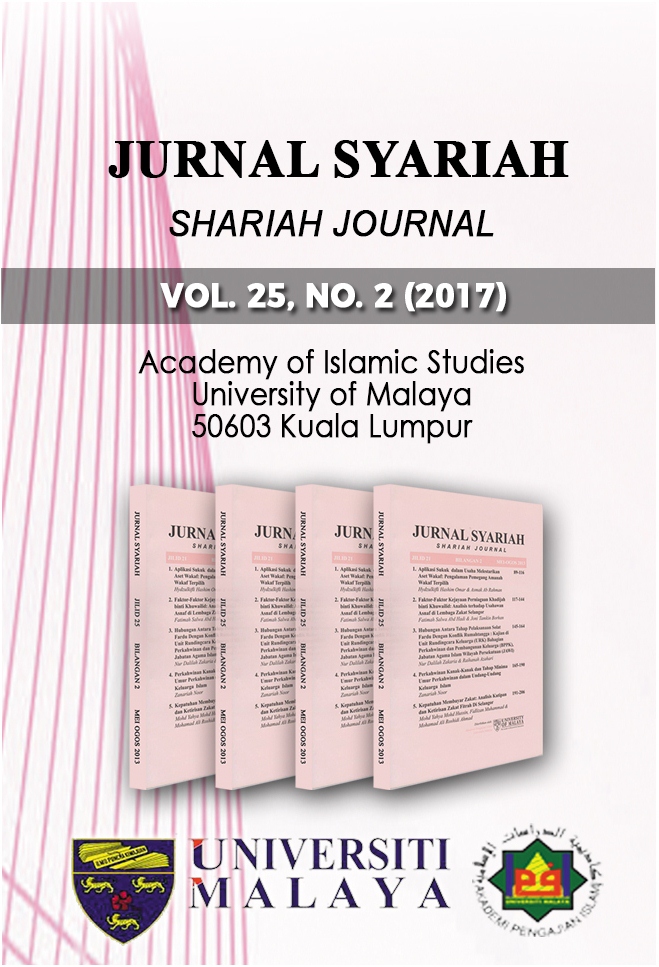WAKAF TUNAI DAN APLIKASINYA DALAM UNDANG-UNDANG DI NEGARA ASEAN
Cash Waqf and Its Application in ASEAN Countries’ Laws
DOI:
https://doi.org/10.22452/js.vol25no2.3Keywords:
cash endowments, fatwa, administrative law, ASEANAbstract
Waqf is a form of benefit of public property by means of giving said property inaleable rights by Allah SWT. Originally, waqf was derived from immovable property so as to ensure the continued benefits to the public by the nature of being permanent and more difficult to damage or corrupt. As such, the concept of cash waqf appeared contrary to earlier theories regarding the perpetuity of of endowment. This is because the nature of cash waqf involves movable property and a lack of permanence; it can be lost or damaged easily. However, there have been differences of opinion among jurists and some of them have accepted the view that there can be cash waqf. That said, Abū Ḥanīfah, Abū Yūsuf, and the majority among Shāfi‘ī and Ḥanbalī scholars do not accept this theory. In the contemporary period though, the acceptance of cash waqf is gaining acceptance in many countries including Muslim countries of which the majority are Shāfi‘ī. This study was conducted to examine the concept,its implementation, and public acceptance of current legislationsin various ASEAN countries. This study is qualitative in which data were collected and analysed with the method of literature review and analyzed alongside current legal practices as stipulated in the provisions of national statutes and the fatawa. The study focuses on Islamic countries in ASEAN which primarily appealto the Shāfi‘ī madhhab, such as Malaysia, Indonesia, Brunei, Singapore and Thailand. The study found that ASEAN countries are largely in disagreement with regard to the Shāfi‘ī position’s non-acceptance of cash as a form of waqf. This disagreement proves that ASEAN countries are open to accept other Islamic jurists as long as it brings benefit to the Muslim community.
Downloads
Downloads
Published
How to Cite
Issue
Section
License

This work is licensed under a Creative Commons Attribution-NonCommercial 4.0 International License.
COPYRIGHT: All rights reserved. Not allowed to be reproduced any part of articles and contents of this journal in any form or by any way, whether electronic, mechanical, photocopying, recording or otherwise without permission in writing from the Chief Editor, Jurnal Syariah.











